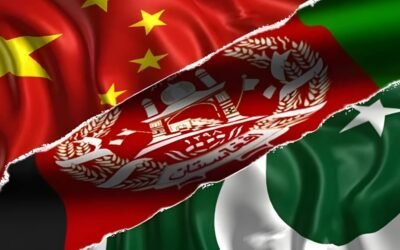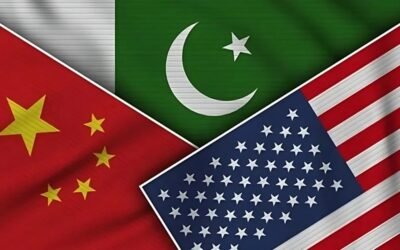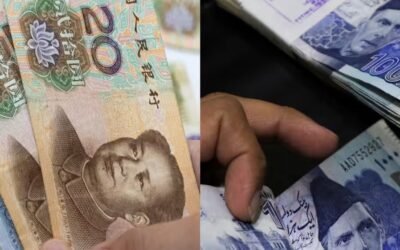A Strategic Imperative for Pakistan’s Economic Stability and Social Cohesion
With nearly 64% of its population under the age of 30, Pakistan has to tackle a significant issue in the shape of unemployment, generally and youth unemployment in particular. Youth unemployment — currently estimated between 11% and 13%, with underemployment and informal labour pushing that figure higher — poses a critical challenge to Pakistan’s economic future and social fabric. While the causes are multi-layered, ranging from structural economic issues to educational mismatch, the urgency of effective and forward-looking policy interventions cannot be overstated.
The Scope of the Crisis: A Disconnected Generation
Pakistan produces over 2 million new job seekers annually, yet the formal sectors of the economy are simply not growing fast enough to absorb them. Compounding this are systemic problems:
- Skills mismatch: A widening gap between what universities and technical institutions produce and the demands of industries and the job market exacerbates unemployment rates.
- Urban-rural disparity: Concentration of job opportunities in a few urban centres leaves rural youth underutilised.
- Informal economy reliance: Over 70% of youth employment exists in the informal sector, characterised by low wages, poor conditions, and no social security.
- Gender gap: Female youth unemployment stands higher than that of males, primarily due to cultural, mobility, and structural barriers.
The outcome is a growing pool of disillusioned, educated yet jobless youth, vulnerable to radicalisation, crime, and brain drain — all of which hold long-term implications for national security and development.
Education and Training Reform: Aligning Skills with Markets
Central to addressing youth unemployment is overhauling Pakistan’s education-to-employment pipeline. While national education budgets have seen nominal increases, they remain below 2% of GDP, limiting both reach and quality. More importantly, curricula remain theoretical and outdated. To tackle the growing problem of unemployment, particularly among youth, Pakistan needs to:
Expand and modernise TVET (Technical and Vocational Education and Training) programmes to reflect emerging sectors like IT, renewable energy, logistics, and creative industries.
- Foster industry-academia linkages to ensure training aligns with real-world needs, including soft skills such as communication, problem-solving, and digital literacy.
- Incentivise the private sector and international donors to co-invest in apprenticeship and skills development initiatives, particularly in underserved regions.
The success of the Punjab Skills Development Authority (PSDA) and the National Vocational and Technical Training Commission’s (NAVTTC) Skill for All programme is a positive example; however, scalability and impact remain limited.
Entrepreneurship and the Start-Up Ecosystem: Enabling Self-Employment
Given Pakistan’s constrained job market, entrepreneurship must be mainstreamed as an alternative career pathway. However, barriers persist in the form of access to credit, weak mentorship networks, and a lack of regulatory ease.
Policy interventions must focus on:
- Creating dedicated youth entrepreneurship funds with soft loans, equity matching, and risk-sharing frameworks.
- Tax breaks and regulatory exemptions for youth-led startups for their initial years.
- Scaling incubators and accelerators at the district level, beyond major urban hubs, especially focusing on women and marginalised groups.
Digital platforms such as DigiSkills and eRozgaar have generated momentum in the freelance economy, but Pakistan still lags in transforming this into a full-fledged digital labour ecosystem.
Labour Market Reforms: Incentivising Formal Hiring
The informal nature of Pakistan’s economy not only limits job quality but also undermines national productivity. The state must:
Simplify and modernise labour laws to encourage SMEs and large corporations to hire formally.
- Offer social security incentives and wage subsidies for companies hiring youth on long-term contracts.
- Expand public-private partnerships for job-matching portals and recruitment services tailored to fresh graduates and first-time job seekers.
- Integrating youth into the formal economy also enables better data tracking, tax inclusion, and social safety net coverage.
Macroeconomic Stability and Job-Creating Growth
No employment strategy can succeed without economic growth. Pakistan’s recurring cycles of inflation, external debt crises, and political instability create a fragile investment environment that discourages job creation and economic growth. Thus, alongside tailored policies for youth, the government must:
- Prioritise labour-intensive sectors such as construction, agriculture, processing, tourism, and green infrastructure.
- Leverage CPEC and regional trade opportunities to develop industrial zones that employ local youth.
- Integrate youth employment goals into national economic policy, not as social welfare but as productivity enhancement.
Social Inclusion and Mental Health: Addressing the Human Cost
Unemployment is not just an economic metric; it also affects mental well-being, identity, and social trust. Correspondingly, unemployed youth report stress, depression, and a sense of exclusion, which can be exacerbated by political polarisation and a lack of civic engagement. National policies meant to save youth from mental and physical deterioration must therefore include:
- Mental health support services for unemployed youth.
- Programmes for volunteerism, sports, and civic engagement to keep youth productively occupied.
- National campaigns that challenge the stigma of vocational work and promote the dignity of labour.
Turning Crisis into Opportunity
Youth unemployment is not a short-term issue — it is a strategic national emergency. Left unaddressed, it threatens to undermine every pillar of Pakistan’s future: economic resilience, social harmony, and democratic stability. However, with intelligent, inclusive, and sustained policy, Pakistan can transform its youth bulge from a liability into its greatest strength.
This moment calls for coordinated action across ministries, provinces, private sectors, and civil society, not for isolated pilot projects or donor-funded experiments, but for a serious national employment initiative. In a world moving fast toward automation and AI, Pakistan’s real competitive advantage lies not in machines but in its young people, provided the state equips them to thrive.








